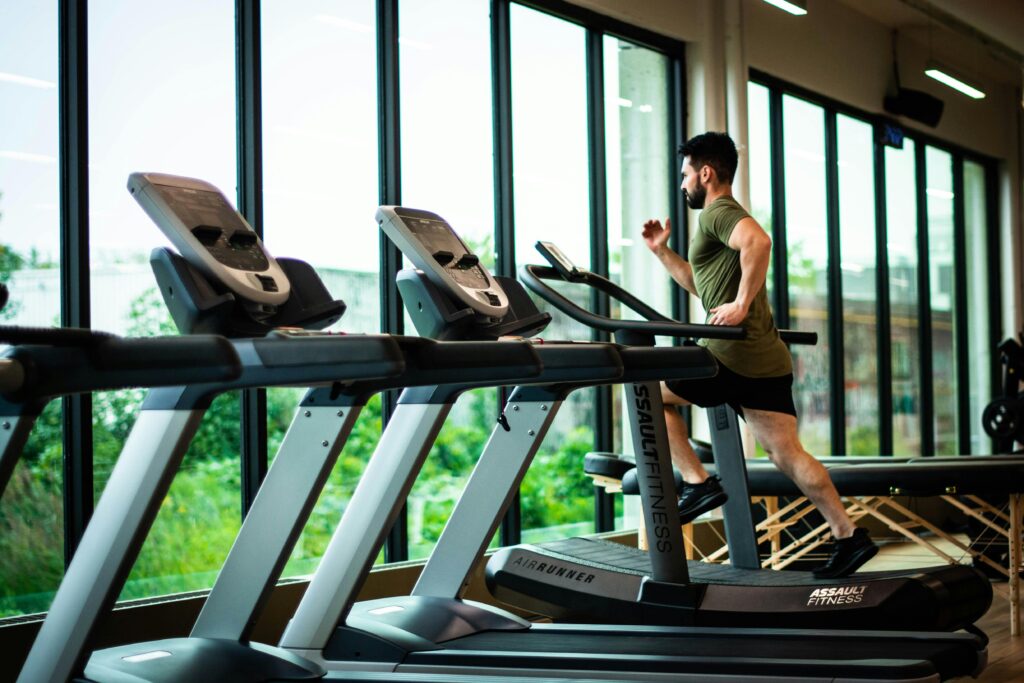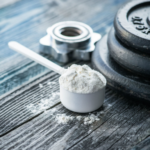There has long been discussion among fitness enthusiasts about the idea that aerobic exercises prevent the development of muscle. Many people think that doing too much cardio will hinder their attempts to gain muscle. On the other hand, this misperception must be cleared up.

The Myth Debunked
In actuality, modest aerobic exercise does not impede the growth of muscle. In reality, there are various ways in which it might enhance your strength training regimen.
Better Cardiovascular Health: Engaging in cardiovascular exercises improves overall fitness and endurance by fortifying your heart and lungs. For your muscles to receive the oxygen and nutrients they need to grow and recover, a healthy cardiovascular system is necessary.
Increased Blood Flow: Cardio boosts blood flow throughout your body, including your muscles. This improved circulation promotes muscle growth and repair.
Fat Loss: Cardio can assist you in losing extra body fat if your objective is to show off your underlying muscular mass. Cardio helps create a calorie deficit, which is essential for fat loss, by burning calories.

Cardiovascular Benefits for Muscle Growth
Improved Recovery: Engaging in regular cardiac exercise can help your body heal more quickly. Exercise that increases oxygen delivery and blood flow will lessen tiredness and soreness in the muscles.
Increased Metabolism: Exercise can increase your body’s resting metabolic rate, which increases calorie burning even while you’re not moving. This can boost muscle growth in an indirect way and help with fat loss.
Better Body Composition: You can attain a balanced body composition with lean muscular mass and minimum body fat by following a well-rounded fitness regimen that includes both strength training and cardio.
Striking the Correct Balance
Even while aerobic activity has many advantages, it’s crucial to balance it with strength training. If excessive cardio results in overtraining or an excessive amount of calories used, it may impede the building of muscle.
Listen to Your Body: Be aware of the cues that your body sends forth. Take a rest day if you are unusually tired or sore.
Moderate Intensity: Choose aerobic exercises with a moderate level of intensity, such as cycling, swimming, running, or brisk walking. Exercises known as high-intensity interval training (HIIT) have been shown to be beneficial when done sparingly.
Nutritional Guidance: Make sure you’re getting adequate protein in your diet to help with muscle growth and repair. Consuming enough calories is also essential for sustaining muscular growth during exercise.

Advice for Including Cardio
Plan Your Schedule Wisely: Think about switching between strength training and cardio sessions to allow for proper recovery.
Change Up Your Routine: To avoid monotony and work different muscle areas, including a variety of cardio activities,.
Start Gradually: If you’ve never done cardio before, start out with shorter sessions and work your way up to higher intensity and longer durations.
In summary
Cardio does not always have to be harmful to muscle growth; in fact, it can be an important part of a well-rounded fitness program. You may reach your fitness objectives, improve body composition, and raise your level of general fitness by striking the correct balance between aerobic and strength training.



